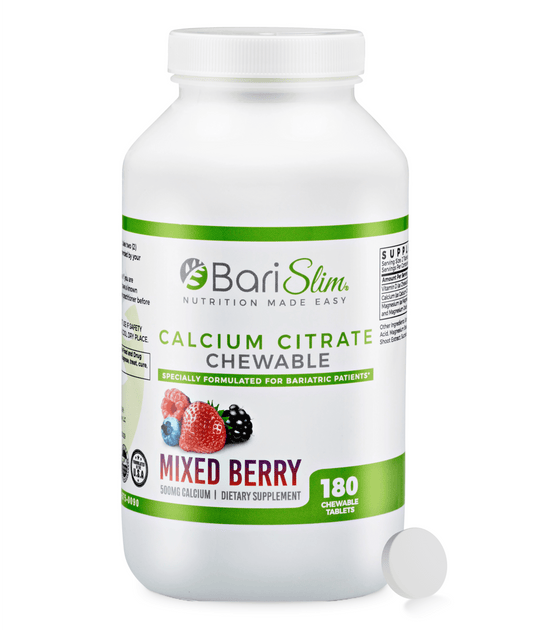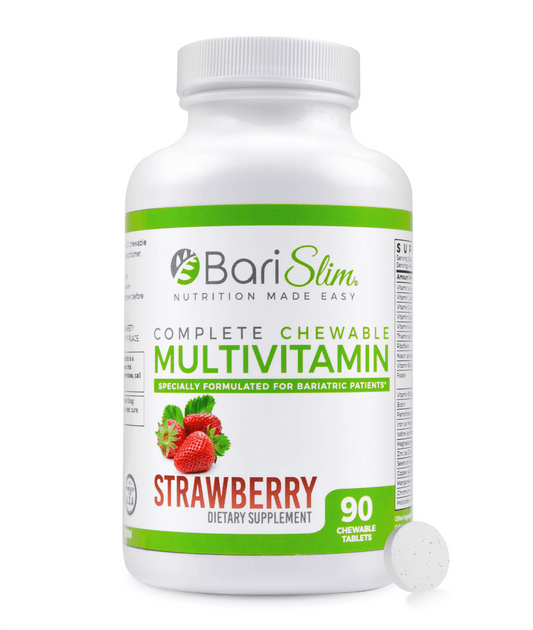Table of Contents
Weight loss surgery can be a life-changing decision that leads to improved health and overall well-being. As you adapt to your new lifestyle after the procedure, it's essential to understand the nutritional guidelines and dietary restrictions that come with it. One common question is whether or not you can eat eggs after bariatric surgery.
Eggs are a versatile, nutrient-dense food packed with high-quality protein, vitamins, and minerals. Protein is crucial for maintaining muscle mass, promoting wound healing, and ensuring overall health after bariatric surgery. Meanwhile, adjusting your diet to smaller portions and nutrient-rich foods is necessary to prevent complications and promote optimal weight loss.
In the initial stages after surgery, you may need to follow a liquid or pureed diet; however, once your healthcare provider gives you the green light, you can safely incorporate soft, scrambled eggs into your meal plan. It is essential to listen to your body and follow the specific recommendations provided by your surgeon and dietitian to ensure that your new diet supports your health goals.
Why Eggs are a Great Staple Food After Bariatric Surgery
Eggs are an excellent choice for your post-bariatric surgery diet. They are packed with nutrients like high-quality protein and essential vitamins, which help to support your recovery and overall health.
One of the primary reasons you may want to incorporate eggs into your diet is their high protein content. Each egg contains about 6 grams of protein, which is vital for building and repairing tissues after surgery. Your body needs adequate protein to heal properly and to maintain muscle mass during weight loss.
Eggs also provide essential vitamins and minerals, including B vitamins, vitamin D, selenium, and choline. These nutrients contribute to a healthy immune system, energy production, and nerve function. As you adjust to your new diet, it's crucial to maintain optimal nutrient levels.
Another advantage of eggs is their versatility. You can prepare them in various ways, such as scrambled, hard-boiled, or in an omelet. Soft-scrambled or poached eggs may be more comfortable to digest during the early stages of your recovery. As you progress, you can experiment with different cooking methods and flavors.
Moreover, eggs are an affordable and readily available ingredient, making them a practical choice for your daily meals. Choose pasture-raised, organic eggs when possible to ensure the best quality and nutritional value.
Remember to consult with your healthcare team or registered dietitian before making changes to your post-surgery diet. They can provide personalized guidance on portion size and food selection based on your individual needs and progress after gastric bypass.
How Soon After Surgery Can You Eat Eggs?

After your bariatric surgery, it is important to follow your healthcare team's guidance and diet plan. Your journey to eating solid foods such as eggs will gradually progress as you heal and adapt to the changes in your digestive system.
Initially, you will be on a liquid diet for the first couple of weeks. This phase allows your stomach to heal while providing essential nutrients. Once you move on to the second stage, you will start incorporating pureed foods. During this phase, you can introduce eggs into your diet by preparing them scrambled or as a soft egg salad.
Typically, two to four weeks after your surgery, you can move to the next phase – the soft food stage. In this phase, you can eat eggs without having to puree them. Remember to cook them well and eat them with caution, cutting them into small, easily digestible pieces. You can gradually increase the quantity by monitoring your tolerance levels.
Incorporating eggs into your post-bariatric surgery diet provides you with essential protein to maintain muscle and enhance the healing process. However, everyone's experience differs, and the timeframe for incorporating eggs may vary. Listen to your body and consult your healthcare professional before making any significant changes to your diet.
What Types of Eggs are Best After Surgery?
After bariatric surgery, it is crucial to make wise choices when it comes to your protein sources. Knowing what types of eggs work best for you after surgery is essential.
Soft-cooked or poached eggs are a great choice. As your digestive system may be sensitive after surgery, the soft and delicate texture of these eggs can be easily consumed and digested. Be sure to cook the eggs until the whites are fully set, but the yolks remain slightly runny, ensuring a gentle and nutritious meal.
Scrambled eggs offer a versatile option, as you can prepare them with minimal added fats and mix in other protein-rich or nutrient-dense foods such as vegetables, cheese, or lean meats. Use a non-stick pan and a cooking spray to cut back on excess fat. Remember to keep the portion sizes small, as your stomach capacity will be reduced after surgery.
Avoid consuming fried eggs due to their high-fat content, especially if they are fried in oil or butter. The added fats can be difficult for your body to process after surgery, and it can lead to digestive discomfort or even dumping syndrome.
In addition to choosing the right cooking method, consider the following tips to optimize your egg consumption:
- Opt for egg whites over whole eggs if you need to minimize fat intake. Egg whites contain pure protein and no fat, making them an ideal choice for a post-operative diet.
- Incorporate vegetables to add bulk and fiber to your meals, which can help with digestion. Spinach, kale, or bell peppers blend well with eggs and provide valuable nutrients.
- Limit the addition of salt or high-sodium seasonings, as excessive sodium intake can lead to complications such as high blood pressure or water retention.
By considering both the cooking method and the ingredients you pair with eggs, you can successfully incorporate them into your post-bariatric surgery diet for a healthy and satisfying meal.
Also Read: What Foods Can You Never Eat After Gastric Sleeve (List)



 Order Free Sample
Order Free Sample





